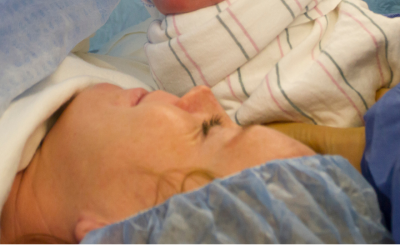
Peter Joseph Pappas Research Grant Program Announces 2019 Award Recipients
The Preeclampsia Foundation announces the recipients of its 2019 Peter Joseph Pappas Research Grants, a funding program designed to accelerate preeclampsia research. Based on the recommendations of its Preeclampsia Registry Advisory Council, the Preeclampsia Foundation awarded these two-year grants totaling $191,000 USD to Catherine Anne Cluver, PhD, MBChB, Wendy Koster, MD, PhD, and Kimberly J. Reidy, MD.
Some will utilize data available through The Preeclampsia Registry™, the Preeclampsia Foundation’s dynamic database of research participants that includes preeclampsia and HELLP syndrome survivors, family members, and controls (unaffected individuals).
Principal Investigator Catherine Cluver, PhD, MBChB, with the Department of Obstetrics and Gynaecology at Stallenbosch University in South Africa, was awarded the grant for her research proposal Preeclampsia Intervention (PI2) Trial: A phase II double blind randomised control trial to metformin to treat preeclampsia. Laboratory research has recently shown that metformin, a drug commonly used to treat diabetes in pregnancy, may be a treatment for preeclampsia. Specifically, metformin decreases the release of key factors from the placenta that are thought to cause preeclampsia and it improves maternal blood vessel function. This clinical trial will assess whether metformin may be an effective treatment for preeclampsia.
Principal Investigator Wendy Koster, MD, PhD, with the Department of Obstetrics and Gynecology at Erasmus MC, University Medical Center Rotterdam in the Netherlands, received the grant for her research proposal Healthy heart, healthy pregnancy? How a woman's periconceptional cardiovascular health affects the development of preeclampsia. The overall aim of this cross-team collaborative project is to explore the connection between a woman’s heart health around the time of conception and the development of preeclampsia.
Principal Investigator Kimberly J. Reidy, MD, with Montefiore Medical Center/Albert Einstein College of Medicine/Pediatrics Nephrology in New York, was awarded the grant for her research proposal Fetal APOL1 gene variants and risk for preeclampsia. This research will study if genotyping for fetal APOL1 risk variants, present only in those of African descent, can help identify mothers at highest risk for preeclampsia complications. It will also study how baby’s APOL1 risk variants contribute to preeclampsia.
Named for the infant son of preeclampsia survivor Lauren Pappas and her husband Clement, the Peter Joseph Pappas Research Grants program award grants totaling up to $200,000 each year. The ultimate goal of the program is to drive research that will eliminate the delivery of pre-term babies as an intervention for severe preeclampsia, HELLP syndrome, and related hypertensive disorders of pregnancy.
“We lost our son Peter due to preeclampsia following a 29-week delivery in 2015,” explained Lauren Pappas. “Since then we have dedicated our lives to helping others avoid the same outcome by establishing the Peter Joseph Pappas Fund.”
“Thanks to generous contributions from family and friends, and our partnership with the Preeclampsia Foundation, we are making strides to reach our ultimate goal of eliminating pre-term births due to preeclampsia by 2050,” added Clement Pappas.
The Peter Joseph Pappas Research Grants program adds to the Preeclampsia Foundation’s portfolio of research programs including the Vision Grant program for young investigators, PRIME for health services research, and EMPOWER, which helps build research capacity in low- and middle-income countries.
If you have any questions about the Peter Joseph Pappas Research Grants program, please email PJPGrants@preeclampsia.org.
Related Articles

Your story is needed to improve outcomes for moms like you. Add your voice to critical preeclampsia research to ensure that every story is heard.

Frequently asked questions about the Preeclampsia Registry, a patient-driven registry and biobank.

The Preeclampsia Foundation offers research funding, study recruitment, and other patient engagement services to researchers.

We provide research grant funding to advance progress towards detection, prevention, or treatment of preeclampsia, HELLP syndrome, and other hypertensive disorders of pregnancy.

How does preeclampsia affect health after pregnancy? Preeclampsia doesn’t always end with delivery. It is now recognized as an early warning sign for future cardiovascular disease. Women who h...

Recent findings in preeclampsia research have shown that preeclampsia likely has at least two variants – an early onset and a late onset variant. Early onset is typically defined as before 34 we...

Preeclampsia is a pregnancy complication marked by new-onset high blood pressure and signs of stress on organs such as the kidneys, liver, and brain. While much attention is often given to preterm dis...

Preeclampsia is a serious problem that can happen during pregnancy. It often affects the brain and can cause headaches, vision problems, strong reflexes, and seizures (called eclampsia). In this study...

Pregnancy offers a unique window into a woman’s future heart and cardiovascular health. Conditions such as hypertensive disorders of pregnancy (HDP) which include gestational hypertension, preec...

